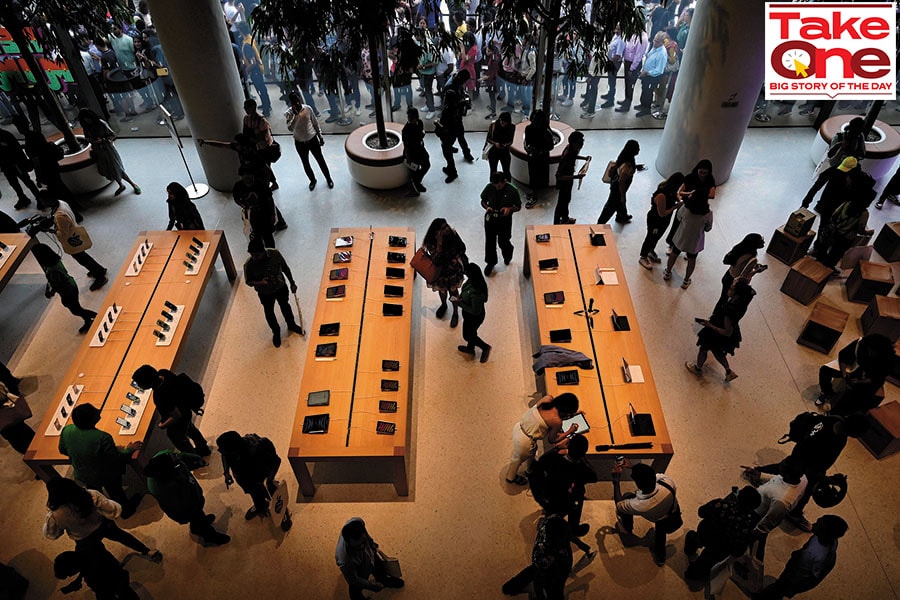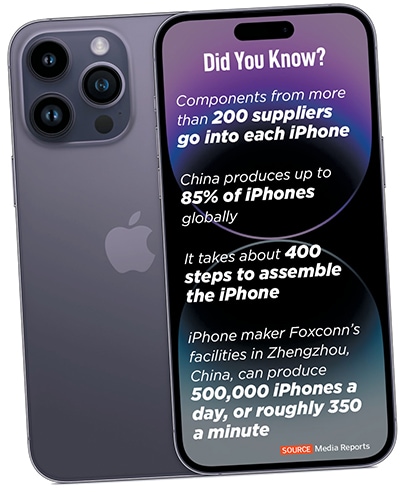
Apple's retail plan for India: The iPhone maker can no longer ignore world's 2nd largest smartphone market
As it celebrated 25 years of the products being available in the country, Apple finally opened its first retail outlets in India. With localised manufacturing already in place, here's why Apple can no longer not have official physical stores here
 Visitors take a look at the various products on display at the inauguration of Apple’s first retail outlet in Mumbai; Image: Anshuman Poyrekar/HT via Getty Images
Visitors take a look at the various products on display at the inauguration of Apple’s first retail outlet in Mumbai; Image: Anshuman Poyrekar/HT via Getty Images
After a delay of two years, in the week that Apple celebrated 25 years of its products in India, the California-headquartered company finally opened its first-ever store in India on April 18.
Apple’s original plan to open physical stores in India was for 2021, but it was delayed by the Covid-19 pandemic. Till now, customers in India purchased Apple products either online or from ‘premium resellers’ or third-party retailers, who had to acquire a licence from Apple to sell its devices. Apple launched its official online store in India in September 2020.
The new Apple stores—a 20,000 sq ft store spread across two floors at the Jio World Drive mall in Mumbai, and an 8,500 sq ft store in Saket in New Delhi—come at a time when the company is trying to expand its retail push in India, the world’s second largest smartphone market where it sees ample opportunities. With localised manufacturing already in place for Apple in India, sales are now expected to get a boost with these official stores.
“The opening of these stores will benefit us, as customers will become more aware of the brand and its products. We will also be motivated to enhance customer experience. There is no direct competition, given that our store is not in the same city, but indirectly there is a little bit of competition,” says Pritesh Parikh, founder of iTronics and iPearl, an authorised Apple reseller in Ahmedabad. He runs seven stores in the city and has been selling Apple products for almost a decade. These resellers purchase Apple products from national distributors Redington India and Ingram Micro.
“There are about 90 Apple premium resellers in India, with 400 stores across the country,” adds Parikh, who claims to see a lot of customers who want to shift to iOS from Android. About 95 percent of smartphones in India run on Google’s Android platform, while iPhones remain an aspirational product in the price-conscious market. “We noticed that even after the launch of iPhone 14, more customers are preferring to buy iPhone 13. In our stores, most people buy the phones on no-cost EMIs; 60 to 70 percent of our sales are on EMIs at present. Plus, there are good cashback offers available,” Parikh says.








